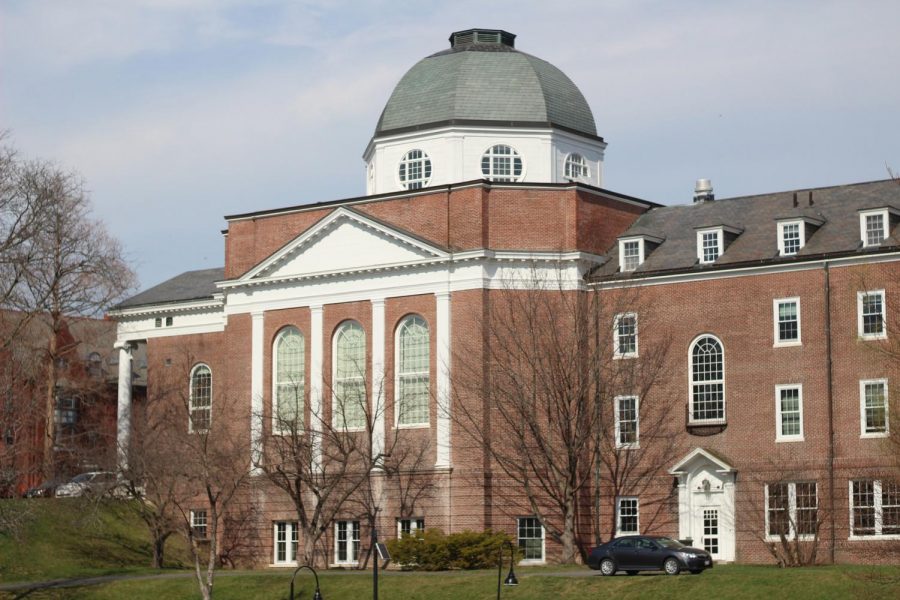On Monday, Feb. 12, Smith College hosted a diverse panel of experts to speak on the political controversy of gerrymandering.
Titled “Gerrymandering Steals Elections: Learn How It’s Done and How to Stop It,” the discussion focused on the historical context of gerrymandering, the role of STEM and the consequences of the practice. Much of the material discussed was in reference to the 2016 presidential election.
Panelists included Congressman Jim McGovern, Massachusetts State Representative Paul Mark, University of Massachusetts professor Nestor Guillen, Mount Holyoke professor Adam Hilton and Represent.Us founder Josh Silver. The panel was moderated by former Northampton mayor Claire Higgins.
McGovern argued that gerrymandering’s role in congressional elections was dangerous.
“What’s happening in Congress is not representative of this country,” McGovern said. “It’s the extreme hardline right wing…this is a big problem, and it all begins with state legislatures.”
McGovern continued: “My sense is that what they’re going to do is try to undercount areas of this country, mostly urban areas where you have…large minority populations where you actually need government in a very meaningful way.”
Guillen, a UMass assistant professor of mathematics and statistics, gave a simple visual example and definition of “gerrymandering” for the audience.
“If you think of it like resource allocation…you’re drawing a map and you’re told…to give an advantage to a [political] party, then, you can see how you can try to marshal resources to maximize your voting power,” Guillen said.
Guillen then presented the change in party representation based on the redrawing of district lines in North Carolina and Pennsylvania, juxtaposing seat allocation in 2012 to 2016.
The statistics presented revealed a spike in Republican representatives, and consequently, a loss of Democratic representatives holding seats in the House of Representatives for both states.
“[The changed representation] of [North Carolina and Pennsylvania] have been ruled by a court to be unconstitutional,” added Guillen. “Mathematicians have developed the tools…to evaluate whether a map has been given districting plans [that are] out of line.”
The panelists discussed the loss of an active voting citizenry as a result of gerrymandering, and the creation of unfair boundaries. The loss of competition in districts led to the loss of incentive to physically cast a vote.
“Many [citizens]….have no real incentive to go out and vote anyway,” Hilton argued. “Those many millions who voted for Hillary Clinton in California…as high as that turnout was, many…who were supportive of [Clinton] did not turn out because they knew the way that that election would go.”
The lack of individual voter impact in gerrymandered districts created “winner-take-all” elections, with supposed guaranteed winners.
Hilton said, “Winner-take-all elections…produce voter apathy and lower voter turnout.”
Andrea Hanley is a Collegian contributor and can be reached at [email protected].



















